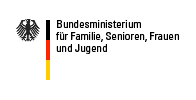Aspects
Gender aspects in education
Role models and school: By virtue of its job of providing education, the school plays an especially important part in changing existing gender relations and breaking down traditional role models and gender stereotypes. Girls and boys go through the school system in a particularly decisive phase in their lives when initial decisions are being made about their future lives and gender stereotypes are formed and fixed. Discussing the topic of “gender equality” with their fellow pupils and with teachers and parents can help to set the direction of their behavior in their later lives. Young people should be motivated to review and question their own behavior in a critical way in terms of conventional notions. What concepts of femininity and masculinity are communicated by fellow pupils and students, teachers, parents and teaching materials? Where and how must educational content be changed to create gender equality?
Choice of subjects: More girls than boys are going into higher education, and in the area of school education they have already overtaken the boys. Numerous studies show, however, that girls develop less self-confidence in co-educational classes in the sciences and mathematics as well as history and politics and are less able to have their interests catered for than boys. In their career orientation, girls and young women frequently allow for the double load of family and career as a matter of course from the beginning, while young men still plan their lives essentially in terms of their careers. It is possible that these two situations contribute to the fact that girls primarily opt for traditional women’s careers and that their access to responsible careers in which they have a say in shaping society is made difficult. How can boys be motivated and prepared to take on careers that are typed as “female” and girls to take on careers typed as “male”?
Educational planning: As part of the planning and execution of any educational event, orientation to gender equality should at all times be borne in mind in the choice of topics, of those attending and those carrying out the event, the time and place of the event, advertising for the event and the working form and methods.
Choice of subjects: More girls than boys are going into higher education, and in the area of school education they have already overtaken the boys. Numerous studies show, however, that girls develop less self-confidence in co-educational classes in the sciences and mathematics as well as history and politics and are less able to have their interests catered for than boys. In their career orientation, girls and young women frequently allow for the double load of family and career as a matter of course from the beginning, while young men still plan their lives essentially in terms of their careers. It is possible that these two situations contribute to the fact that girls primarily opt for traditional women’s careers and that their access to responsible careers in which they have a say in shaping society is made difficult. How can boys be motivated and prepared to take on careers that are typed as “female” and girls to take on careers typed as “male”?
Educational planning: As part of the planning and execution of any educational event, orientation to gender equality should at all times be borne in mind in the choice of topics, of those attending and those carrying out the event, the time and place of the event, advertising for the event and the working form and methods.
Literature:
- Bundesministerium für Familie, Senioren, Frauen und Jugend: 1. Datenreport zur Gleichstellung von Frauen und Männern in der Bundesrepublik Deutschland – Kapitel 1:Bildung, Ausbildung und Weiterbildung, erstellt vom Deutschen Jugendinstitut in Kooperation mit dem Statistischen Bundesamt, Berlin 2005.
- Krabel, Jens / Stuve, Olaf (Hrsg.): Männer in "Frauen-Berufen" der Pflege und Erziehung, Leverkusen-Opladen: Barbara Budrich 2005.
- Hurrelmann, Klaus/ Albert, Mathias: Jugend 2002 – 14. Shell-Jugendstudie, Fischer Taschenbuch Verlag, Frankfurt am Main 2002.
- BAK Arbeit und Leben: Empfehlungen zur geschlechtergerechten Bildungsarbeit, Broschüre, m & m Druck & Verlag 2002.
- Derichs-Kunstmann, Karin/ Auszra, Susanne/ Münthing, Brigitte: Von der Inszenierung des Geschlechterverhältnisses zur geschlechtsgerechten Didaktik - Konstitution und Reproduktion des Geschlechterverhältnisses in der Erwachsenenbildung, Bielefeld 1999.
- Baur, Esther/Marti, Madeleine: Kurs auf Genderkompetenz - Leitfaden für eine geschlechtergerechte Didaktik in der Erwachsenenbildung, Gleichstellungsbüro Basel-Stadt 2000. Gieseke, Wiltrud (Hg.): Handbuch zur Frauenbildung, Leske u. Budrich: Opladen 2001.
- Gieseke, Wiltrud u.a.: Erwachsenenbildung als Frauenbildung, Klinkhardt, Bad Heilbrunn/Obb 1995.
- Vernetzungsstelle für Gleichberechtigung und Frauenbeauftragte: www.genderundschule.de , ein Projekt im Auftrag des Niedersächsischen Kultusministeriums.
- Landesinstitut für Erziehung und Unterricht Stuttgart (LEU) (Hg.): Qualitätsentwicklung und Geschlechtsspezifische Ansätze, in: Lehren und Lernen, 30. Jg. Heft 1/Januar 2004, S. 3-39.
- Landesinstitut für Schule und Weiterbildung: Mit der Genderperspektive Weiterbildung gestalten, Bönen 2001.
- Ministerium für Schule, Jugend und Kinder des Landes Nordrhein-Westfalen, Landesinstitut für Schule (Hg.): Schule im Gender Mainstream. Denkanstöße - Erfahrungen - Perspektiven, Soest 2005
erstellt von Administrator
—
zuletzt verändert:
02.01.2010 20:08






